Sudan
In the streets of Khartoum, the war for power is between two generals. But in reality, many more players are involved, as the two sides have woven a network of political, economic, and diplomatic allies -- and enemies -- in a region in turmoil.
Sudan has long been courted for its resources and strategic location on the Red Sea.
Today, the Russians and the Emiratis have a firm grip on the ports. And above all on the gold-rich subsoil, largely held, according to experts, by the paramilitary Rapid Support Forces (RSF).
Their boss, Mohamed Hamdane Daglo known as "Hemedti", has been at war with the army commander, Abdel Fattah al-Burhane, since Saturday.
At the time of the 2021 putsch, the two men had joined forces to oust the civilians from power, but for decades they have each had their own allies and sources of income.
On the Hemedti side, gold -- Sudan is the third largest producer in Africa -- is one of them. This manna feeds Wagner's Russian mercenaries, Washington accuses, but also the Emirates, the first buyer of Sudanese gold.
- Pragmatism and the Sahel desert -
Despite these links, Abu Dhabi is acting "with a pragmatism that borders on cynical indifference", stresses a Gulf specialist on condition of anonymity.
"If the war lasts, it is not necessarily bad from the point of view of the Emirates or Russia. The Emirates could keep their influence, which they could not do with a structured power and an army without rival", this researcher decrypts. And Moscow shares "these techniques and ways of doing business".
But Hemedti has made himself indispensable to many other capitals.
First his own: he managed to get into the first circle in Khartoum by leading the bloody war in Darfur with his thousands of men for the deposed former president Omar al-Bashir.
Then he sent them to fight jointly with the Sudanese army alongside the Saudis and Emiratis in Yemen in 2015. Experts report that some of his mercenaries are also believed to be in Libya.
And, nearly a year after the coup, he said he was receiving "technical training from Italy" to fight illegal immigration.
Darfur's stronghold is on the borders of Sudan and Libya -- a major crossing point to Europe -- and Chad.
In this desert, "Hemedti will use his contacts to secure a supply channel" because the Sahel is "flooded with arms and ammunition, since the fall of Muammar Gaddafi in Libya," says Eric Reeves, a researcher at the Rift Valley Institute.
On the other hand, the army can also remind the Gulf that it sent its men to Yemen. General Burhane is also the great architect of the road to normalization with Israel.
And, above all, having passed through the Egyptian military academy, he can count on a former field marshal from the same school, President Abdel Fattah al-Sissi.
Egypt, recalls Mirette Mabrouk, a researcher at the Middle East Institute, shares "1,200 km of border, the waters of the Nile and security issues" with Sudan. It also hosts "between three and six million Sudanese" on its soil.
- Just in case -
Above all, Cairo is already experiencing the "ramifications" of the fighting in Sudan, she said. Several of its soldiers - "trainers" according to Mr. Sissi - have been "captured by the RSF" and "it is negotiating their return".
For researcher Clément Deshayes, "the presence of Egyptian soldiers in Meroe seems to have been the last straw".
"Hemedti felt threatened by Egypt," he explained to AFP, while a few weeks earlier, Cairo hosted a political dialogue between Sudanese forces that were mostly pro-army.
"Egypt tried to make the democratic transition fail", accuses the researcher, "by inviting parties of the former regime for parallel discussions", while in Khartoum, the UN, the African Union, and Western and Gulf capitals were trying to obtain the signature of an agreement to bring civilians back into power.
Today, the international community, which had already cut off its aid during the putsch, no longer seems to be in the driver's seat, overtaken by the African and Arab heavyweights.
Upstream on the Nile, where the Great Renaissance Dam is being built, people prefer to give themselves time.
Already at loggerheads with the Egyptians, "the last thing the Ethiopians want is to alienate the generals who will participate in the final negotiations on the dam," says Reeves.
For Addis Abeda, like "many regional and global actors, has built ties with all parties in Sudan," says the Soufan Center think tank. Just in case.



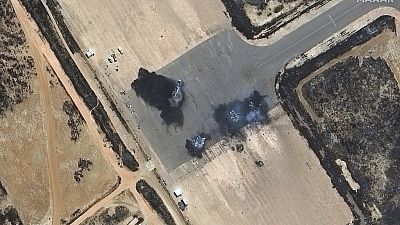

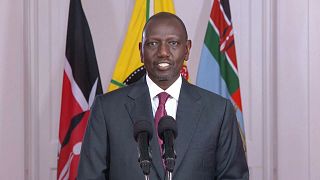
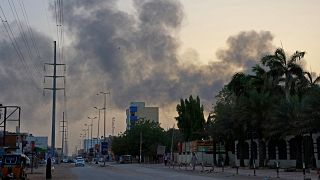
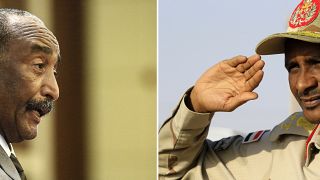
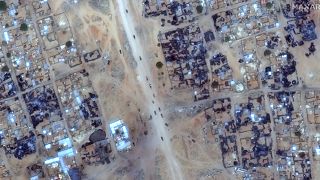
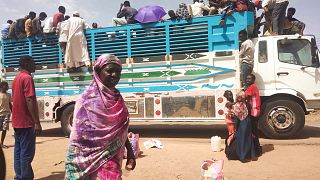
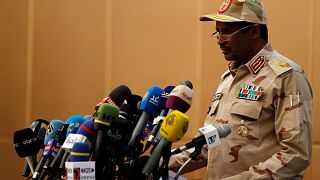



00:47
Ghana: President Mahama suspends Chief Justice Gertrude Torkornoo
Go to video
Police rescue 33 West Africans from a human trafficking scam in Ivory Coast
Go to video
Pope Francis' funeral scheduled Saturday April 26
Go to video
Al-Qaida-linked militants attack a strategic town in Somalia
Go to video
Trump administration threatens Harvard over foreign student visas and protest ties
Go to video
The EU moves to fast-track asylum claims by migrants from 7 countries to speed deportation